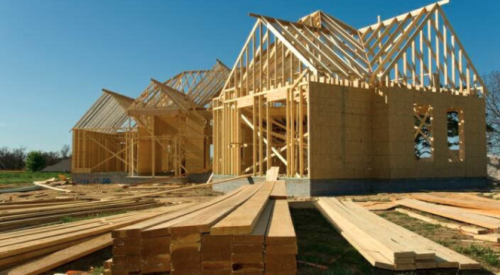It may not be fair, but there’s no doubt about the power. J.D. Power and Associates has clout. And if you build more than 200 houses a year, they’re probably going to target you with a hay-maker in the near future.
The Agoura Hills, Calif.-based champion of customer satisfaction in the automotive industry landed in Chicago’s housing market this past fall, and the dust is still settling around the hole it punched in the egos of some of the town’s biggest builders. Pulte topped the ranking, followed by Lakewood, Del Webb, Neumann and Cambridge Homes. Everyone else surveyed finished below the market average and were listed alphabetically.
At the end of the year, JDP reported on its web site what it learned from surveying new homeowners in Chicago, Dallas/Ft. Worth, Houston, Las Vegas, Washington, D.C. and Phoenix:
"Quality of workmanship/materials and the effectiveness of customer service representatives are the factors that comprise half of overall customer satisfaction."
"Workmanship and material quality problems not only cost builders valuable time and resources, they also don’t go unnoticed by home buyers," says Paula Sonkin, who directed the 2000 New-Home Builder Customer Satisfaction Study. Power’s data reveals the remaining factors that contribute to customer satisfaction (in descending order of importance) are the sales staff, price/value considerations, physical design elements, the builder’s design center, neighborhood recreation facilities and location.
While acknowledging Power’s impeccable reputation for research accuracy, many builders are puzzled by that list. "We all know that location and price/value are the first things buyers consider," says David Hill, chairman of Chicago-based Kimball Hill Homes. "How can they be so far down?"
The answer lies in when buyers are surveyed. J.D. Power insists on getting names and addresses of buyers from the public record in the county of residence. Some counties are slow to get those registrations into the public record. Power’s detailed, four-page survey questionnaires arrive between three and 15 months after closing.
"Location, design and price are very important in why a customer chooses a builder to begin with," says Sonkin, "but by the time we survey, buyers are rating their builder primarily on quality of materials and workmanship and efficiency of warranty service."
The implications of this are remarkable. It means the ability to gain referral sales and maintain a strong word-of-mouth reputation for quality (especially when J.D. Power is around) depends on the ability of the house and the builder’s organization to stand up to the ongoing demands of customers long after closing.
That’s a wakeup call for even some highly ranked builders. David Weekley topped the J.D. Power list in Dallas and finished second in Houston, but he admits 90% of his firm’s attention in the past was directed toward assuring customer satisfaction at closing. "We bought the J.D. Power study, and when we went through the data, it became clear we need to focus more on satisfaction after closing. We’ve got to spend a lot more time on warranty issues if we want to stay on top of the next survey.
"When we looked at their data, the big 'aha!' was the incredible payoff in referrals if you make it to the highest gradation in their rating system, where you really keep customers delighted."
J.D. Power plans to add four to five more markets in 2001, and the firm is now committed to doing the surveys every year. As JDP builds its strength, expect to hear increasing criticism from builders. It’s not just sour grapes.
For instance, Power portrays its surveys as measuring "new-home builder customer satisfaction," without ever mentioning that it actually only ranks the top dozen or so builders in any market. In order to get a statistically valid sampling, Power must have a steady supply of at least 200 buyers each year in the public record. So they cut out everyone who doesn’t consistently close 250 houses a year.
That means the majority of builders, and buyers, are not covered. In Chicago, for example, the 13 firms ranked closed 8379 houses in 2000, in a market with about 27,000 single-family home closings.
One thing seems certain: Power’s will continue its rapid expansion of satisfaction surveys of home builders’ customers. J.D. Power is not going away.










